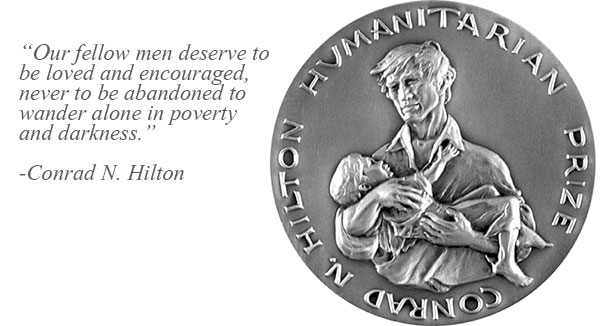
FROM MY FILES FRIDAY
8-22-14 (The Hilton Foundation, http://hiltonfoundation.org, announced last month that Fountain House/Clubhouse International was chosen to receive the 2014 Conrad N. Hilton Humanitarian Prize. At $1.5 million, the Prize is the world’s largest and most prestigious humanitarian award. It is presented to a non-profit judged to be doing extraordinary work to alleviate human suffering. This is the first time the Hilton Prize has been awarded to a mental health organization. In 2010, I wrote about the importance of clubhouses. Congratulations to Fountain House and to the many Clubhouses that it has helped launch.)
Clubhouses Change Lives
I am always touched when I hear recovery stories, especially those told by young people. Jourdan Miller, a beautiful girl in her early twenties, described how important the HOPE Clubhouse in Ft. Myers was to her recovery. As with so many of our young people, Jourdan had excelled as a teenager and had gone to college with big plans – only to become sick. She was diagnosed as having bipolar disorder and not long after that she became so ill that she had to drop out. At one point, she was suicidal. When she called the local police during a manic episode, rather than getting help, she ended up getting arrested and jailed — “to be taught a lesson.” That experience – at the hands of unsympathetic and poorly trained sheriff’s deputies — resulted in her developing PTSD.
Jourdan spoke eloquently at a recent luncheon about how she was in such anguish that she simply wanted to give up — until her parents got her to visit the HOPE CLUBHOUSE.
“The HOPE CLUBHOUSE,” she said. “Saved my life.”
The clubhouse was launched in Ft. Myers by a handful of concerned parents, who wanted someplace for their sons and daughters to go for help. It is modeled after the successful FOUNTAIN HOUSE program in New York that has been helping persons with mental disorders for more than sixty years. Fountain House has been copied across our country and in many foreign countries. Its roots date back to 1944 when a group of persons with mental disorders organized: WANA — an acronym that meant – We Are Not Alone.
Clubhouses are run entirely by their members. A major emphasis is helping members find meaningful work, even if it is only for a few hours. The sickest might be given a simple task at the clubhouse such as wiping down a table or sweeping up. But most clubhouses offer members transitional work that can help them later obtain paying jobs.
Here’s how a typical clubhouse program works. The Square Peg Company needs a mail room employee so it contacts the clubhouse. The clubhouse might send one member to the mailroom to work for two hours at the job. That member will then be replaced by another member who works for three hours and finally by a different clubhouse member who finishes the shift. The mailroom job gets done each day, which makes the company happy, and three clubhouse members get work experience.
This model helps members whose illnesses might limit how long they can work at a task. It also helps members pump-up their resumes. Most importantly, it provides members with the opportunity to work, which gives them a purpose. It helps restore confidence and pride.
Having members run a clubhouse enables people who are sick to have a voice in their own recovery. Oftentimes, they are told by doctors, their parents, other relatives or by mental health workers what they can and can’t do. They are told to lower their expectations. Letting them be in charge and make decisions is important because it enables members to set their own goals and then strive to achieve them. Clubhouses also build a sense of community. If someone begins to have problems, the other members recognize it and intervene.
I have toured Fountain House and other successful clubhouse programs, such as The Carriage House, in Ft. Wayne, Indiana, and have seen how the clubhouse model helps people recover.
As clubhouses expand, they often offer their members other services in addition to job training and fellowship. Many clubhouses help with housing. Having a safe place to live is essential to recovery.
Jourdan ended her testimonial on a happy note. She explained that she had met and fallen in love with another clubhouse member. They plan to marry. More important, she said she was moving on with her life. She was no longer depressed. She was not alone. Today, she is optimistic and confident about her future.
One reason why I was so happy to speak at the HOPE CLUBHOUSE is because in my talks, I talk about the need for HOPE.
To me, recovery is much like an old fashioned wagon wheel. Each spoke is a different recovery tool. Jobs are a spoke in this wheel, so is housing, so is medication, so is transportation, so is social acceptance — the spokes go on and on.
But the hub that pulls all of these recovery spokes together is HOPE. Without HOPE, there can be no recovery.
I am not naive. I do not believe everyone who is sick will eventually get better. Like cancer, severe mental illnesses are ruthless. But most can and do, and even in the most severe cases, I believe that we must offer people HOPE.
I’ve seen cases where patients were described as being “un-restorable” and “treatment resistant.” Yet, they have recovered despite such hopeless tags. We don’t know who will get better and who will not. That is why we must offer everyone hope.
Inspirational writer Hal Lindsey is credited with saying:



